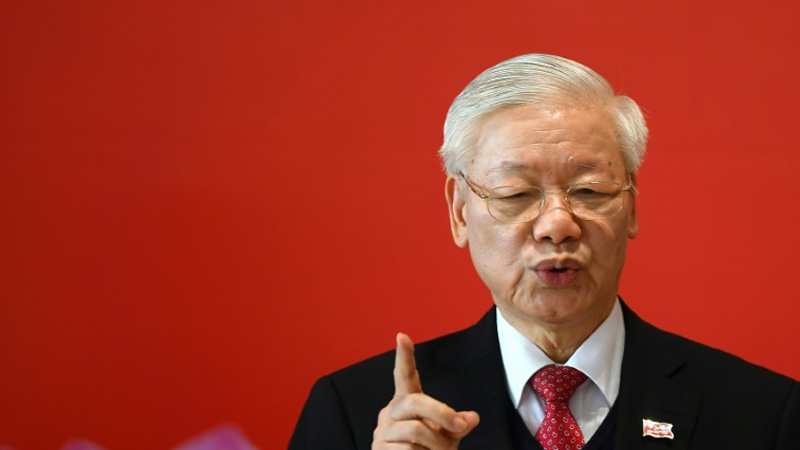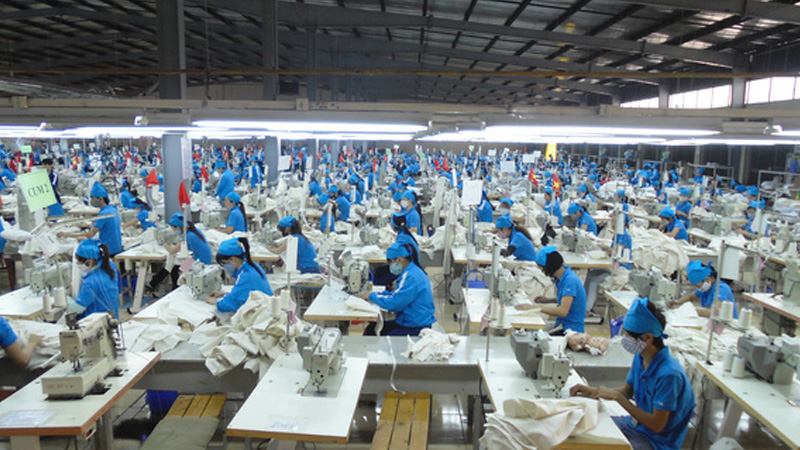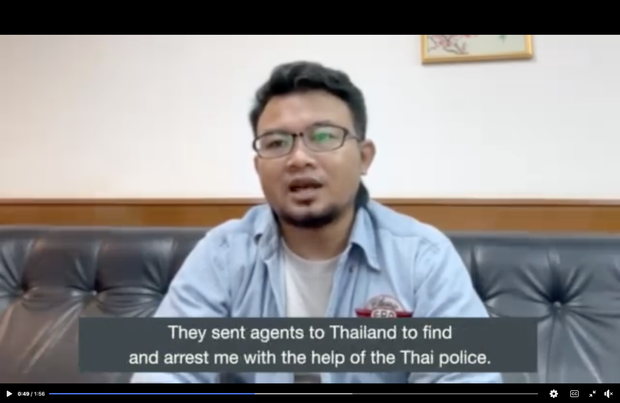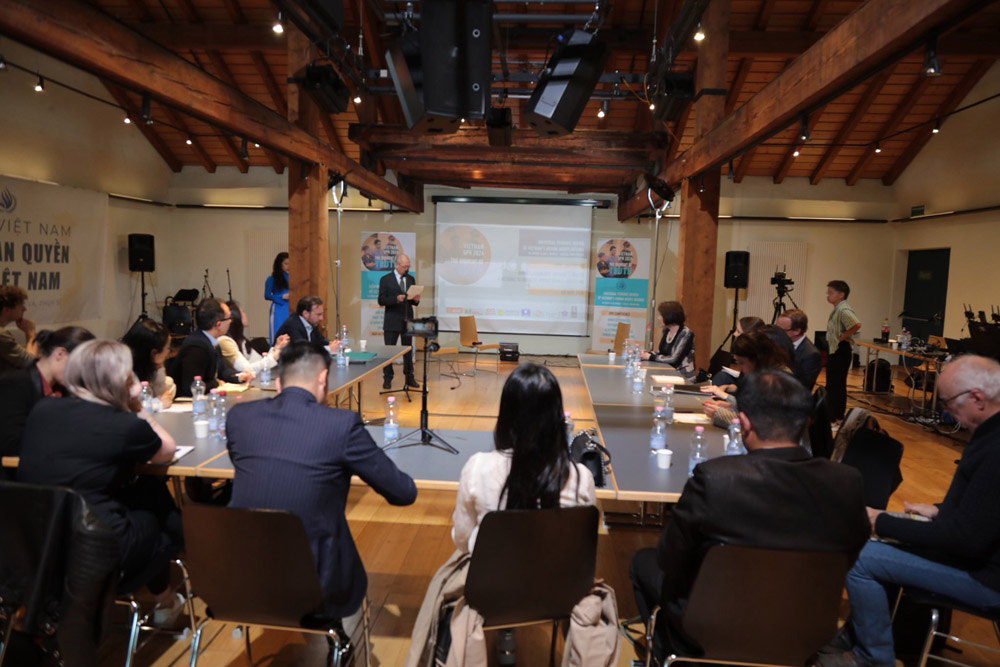Nearly thirty years after the fall of Saigon in 1975, a new geopolitical schema is taking shape between the Vietnamese who stayed in the country, the communist government of Hanoi and the overseas Vietnamese.
At the early beginning of the 21st century, the development and the welfare of the Vietnamese people are in every mind. But the way to apprehend the situation and the real needs of the country has aroused diametrically opposed reactions here and there in the Vietnamese community.
On one side, there is the Resolution 36 on the overseas Vietnamese affairs by the Politburo of the Vietnamese government that aims to “facilitate the return [of the overseas Vietnamese] for visiting family, doing business and developing cooperation in science, technology, art and culture.”. Since it is conscious of the potential that the overseas Vietnamese communities represent today, Hanoi government has promulgated this text that pays particular attention to recognize the Viet Kieu qualities: full of “patriotism”, of “national esteem”, they would never have ceased “preserving cultural traditions and making spiritual and financial contribution or even sacrificed their own life for the cause of national liberalization and reunification”. Always according to the Politburo, the overseas Vietnamese would all have applauded the Doi Moi process and the policy for the great national unity of Hanoi. All of them, except a minority of Vietnamese, who only aim to “undermine” the development process made by Hanoi, “due to their prejudices or sense of inferiority”.
That same text, though looking pleasant and caring about upholding of the traditions and the cultural links with the overseas Vietnamese, aims to a completely different goal. Actually the watchword of the Resolution 36 is above all “to invest”. However –they could object – for a developing country as Vietnam, the incoming of foreign capital into the national economy would only help its development. In fact the text of the Resolution insists on the common and final goal of such investments by the Viet Kieu in their fatherland: we should reunite the nation, secure national independence and build a “just, democratic and advanced” society where the citizens would evolve regardless of their origins, religion or nationalities. No doubt the Politburo forgot the scandal of the borders with China in 2002 when the government had secretly abandoned hundred of squared kilometers of its territory to its neighbor, and lost like this the gateway Nam Quan and the waterfalls Ban Gioc which were symbols of the territorial integrity. And no doubt the Politburo doesn’t count the numberless imprisonments and bad treatments toward the dissidents, would it be monks, priests, doctors, lawyers or teachers, for having dared to raise their voice against the official line of the government.
But moreover, the sudden interest of the Vietnamese government to the overseas communities allows it to perniciously extend the repression beyond its borders: after having invited the overseas Vietnamese to get invested in Vietnam by any mean (sport, tours “towards the origin”, investment, business), the Poliburo tries, through the Resolution 36, to export its demagogue power and to kindly implant it throughout the overseas Vietnamese. It simply suggests to fill up the cultural gap by introducing television shows, radio emissions, internet websites, vacation camp, classes to learn Vietnamese, all of this for the Viet Kieu… in short, they want to take in hands the whole social organization of the overseas communities and “at the same time, take appropriate measures to prevent any attempt to act against our national interests, jeopardize the relations between Vietnam and countries having a large number of overseas Vietnamese or create division within the Vietnamese community in the host country”. Through the Resolution 36, the Politburo purely and simply exports the dogma that corrodes its own legislation: it is by using the articles 87 sqq and 258 of the penal code that Hanoi justifies the need to imprison all of those who protest against the governmental policy or denounce the violations of the human rights, all of those who use democracy against the national interests.
Today, since it worries about the manifest welfare of the overseas communities and since it is attracted by the commercial perspectives that business can bring, the Vietnamese government wants to reform its attitude toward these communities for a long time criticized and pointed out. Supposedly in the people interest and for its development, supposedly to fill up the needs of the overseas Vietnamese, the Politburo suddenly makes himself the responsible and the judge of the smooth running of the overseas communities which actually have never ceased to be part of the mother country! The official speech has really changed since the first boat people left Vietnam. The traitors have become milch cows that Hanoi enjoys flattering in order to take advantage of the potential monetary incomes.
Does the real welfare of the Vietnamese people pass behind the perspectives of enrichment of the communist party members? Why don’t they establish a Resolution that works in the interest of the people? Why don’t they listen to the needs of the country instead of be interested by the money of the overseas communities?
For the emergency really lies in the direct and elementary needs of the Vietnamese people, and not in the lack of Vietnamese teachers in the USA or of the virtual libraries on internet for the overseas Vietnamese!
On their side precisely, the geopolitical set up is changing as well. Though living in foreign countries, the overseas Vietnamese still keep a deep attachment for Vietnam and a real care for its development and welfare. In consideration of the new challenges that the country faces every day, it becomes essential for the Vietnamese overseas communities to organize and find means to help Vietnam in the most effective way. How to get invested for Vietnam.
This year, Viet Tan party (Viet Nam Canh Tan Cach Mang Dang) which was founded in 1982 and that rallies not only members of the diaspora but also members who have stayed in Vietnam but have been persecuted for that choice, has chosen to appear publicly as a Vietnamese political party and to unveil its program. The ceremony of inauguration and presentation of the Revolutionary Party for the Reform in Vietnam – Viet Tan will take place on September 19th in Berlin and will bring together hundreds members for that occasion. The choice of Berlin is not a gratuitous act. Actually the city remains, after the fall of the wall, a symbol of reunification and hope, in particular for the numerous Vietnamese who lived in the countries of the Eastern bloc, as workers sent by the Vietnamese government and who will attend to this ceremony.
Since it has always been conscious of the bad times and difficulties which the Vietnamese people couldn’t really get out of for many years, Viet Tan has never ceased to denounce the social, religious and ethnic injustices that undermine Vietnam. It wants to propose a real alternative to the dictatorial communist power and a complete reorganization of the system which would lead to a pluralistic society able to face the challenges of modernity and the real needs of the Vietnamese people. More than simply hoping that the investments and the foreign aid could sustain the development and the economy of Vietnam in the long run, Viet Tan wants to create conditions where the people could express freely without having to follow unilateral decisions of a unique and corrupted party, and where it could work for the building of a modern, autonomous and democratic nation thank to the universal suffrage.
Not in order to appropriate the right of expression of the people and to use it for its own economic interests and privileges. But in order to give a chance to the Vietnamese people to express directly and freely. The targets that Viet Tan has set itself and the means to apply these principles will officially be known soon. However, the corner stone of Viet Tan program is the Vietnamese people. Its aspirations will be the strength of a pluralistic society and Viet Tan chooses to officially appear in order to be able to represent a visible political choice for the Vietnamese. Thank to the new means of communication such as internet, Viet Tan hopes to promote its message, get better known by the Vietnamese and help them to choose a pluralistic and just society.
So we can see that the different Vietnamese communities are looking beyond their borders. But while the communist government tries to extend its authority and its ascendancy on the overseas Vietnamese by tempting them with favourable commercial conditions, but at the same time by avail itself of cultural and nearly paternalist intentions, on the other hand these overseas Vietnamese have the occasion to affirm an alternative to the mind « investing in Vietnam »: Viet Tan will allow to publicly express another kind of engagement: getting invested for Vietnam and for the Vietnamese people. Hoping that the time of totalitarianism will ends soon and that the time of prosperity and freedom will come for Vietnam.





